Ethics Paper - Related Material
ALL ETHICS GS PAPER 4 RELATED MATERIAL FREE DOWNLOAD:
http://xaam.org/all-the-material-for-gs-paper-4ethics-integrity-and-aptitude/
VAJIRAM ETHICS CLASS NOTES FREE DOWNLOAD:
https://drive.google.com/folderview?id=0B8TZaX9ba9oHQkhTRkdnTzdrVms&usp=sharing
ETHICS IMPORTANT PPT PDF FREE DOWNLOAD:
ETHICS SYLLABUS::
This paper will include questions to test the candidates’ attitude and approach to issues relating to integrity, probity in public life and his problem solving approach to various issues and conflicts faced by him in dealing with society. Questions may utilise the case study approach to determine these aspects. The following broad areas will be covered.
- Ethics and Human Interface: Essence, determinants and consequences of Ethics in human actions; dimensions of ethics; ethics in private and public relationships.
- Human Values – lessons from the lives and teachings of great leaders, reformers and administrators; role of family, society and educational institutions in inculcating values.
- Attitude: content, structure, function; its influence and relation with thought and behaviour; moral and political attitudes; social influence and persuasion.
- Aptitude and foundational values for Civil Service , integrity, impartiality and non-partisanship, objectivity, dedication to public service, empathy, tolerance and compassion towards the weaker-sections.
- Emotional intelligence-concepts, and their utilities and application in administration and governance.
- Contributions of moral thinkers and philosophers from India and world.
- Public/Civil service values and Ethics in Public administration: Status and problems; ethical concerns and dilemmas in government and private institutions; laws, rules, regulations and conscience as sources of ethical guidance; accountability and ethical governance; strengthening of ethical and moral values in governance;
- Ethical issues in international relations and funding; corporate governance.
- Probity in Governance: Concept of public service; Philosophical basis of governance and probity; Information
- sharing and transparency in government, Right to Information, Codes of Ethics, Codes of Conduct, Citizen’s
- Charters, Work culture, Quality of service delivery, Utilization of public funds, challenges of corruption.
- Case Studies on above issues.
Ethics, Integrity and Aptitude: What to prepare? By S K Mishra, IAS (retd)
It deals with three aspects of a candidate’s preparation
1. Ethics— It means principles which control or influence a person’s behaviour or attitude. One can easily notice that in various questions in Sec A or Section B (case studies), the UPSC approach was not only to test the knowledge component, but also to know that in a particular situation, or solving a particular problem, what will be approach of the candidate ie, whether it will be ethical or unethical, Simultaneously, now there is talk of moral-legal-rational bureaucracy instead of only legal-rational bureaucracy as propounded by Max-Weber. There was a debate that why Civil Servants should bother about moral aspect of their decisions? But now it is an accepted fact that for an enabling government, ethical aspect of decision making can not be ignored.
2. Integrity— The quality of being honest and having strong moral principles. Integrity includes financial integrity, professional integrity and intellectual integrity. Ethics and integrity are the two sides of the same coin. An ethical person having strong moral values is bound to be a man of integrity. Those people who are having experience of working in the government very well know that integrity is evaluated every year through their Annual Performance Report. The evaluation takes place on the basis of decisions/performance of the individual Civil Servants throughout the year. In conducting interview for testing personality of the candidats, the board carefully examines the approach of the answer of individual candidate while assessing their integrity. In written examination, the examiner will obviously look into moral stand of the candidats especially on issues and conflicts faced by them while dealing with various problems.
3. Aptitude— It is a natural ability or skill for doing a particular work or solving a particular problem or facing a particular problem or facing a particular situation. A SHO of a police station and an Asstt. Engineer of Road Construction Department can not have identical aptitude. While SHO needs to be well trained and skilled in handling and using his weapon, investigating a case or facing patiently a slogan-shouting mob, an Astt. Engineer needs to have skill of project formulation, interest and inclination of making a people convenient road construction etc. Also to be very specific one requires a different skill for law and order, for investigation of a case or for working in an intelligence agency. Though to some extent skill is inherent, but it can be acquired and upgraded through training and capacity building. At the written examination stage, it is a fact that candidates do not have working experience, yet they are expected to take decisions and justify them. What is required here that though they are not experienced, yet they must develop capacity to experience. This can be successfully done through discussing good number of case studies. Last year all the six case studies were from three chapters only (Aptitude and foundational values of Civil Services, Public Civil Services values and ethics in public administration and Probity in Governance). This paper is high scoring for those who understand case studies and respond in rational and ethical manner.
1. Ethics— It means principles which control or influence a person’s behaviour or attitude. One can easily notice that in various questions in Sec A or Section B (case studies), the UPSC approach was not only to test the knowledge component, but also to know that in a particular situation, or solving a particular problem, what will be approach of the candidate ie, whether it will be ethical or unethical, Simultaneously, now there is talk of moral-legal-rational bureaucracy instead of only legal-rational bureaucracy as propounded by Max-Weber. There was a debate that why Civil Servants should bother about moral aspect of their decisions? But now it is an accepted fact that for an enabling government, ethical aspect of decision making can not be ignored.
2. Integrity— The quality of being honest and having strong moral principles. Integrity includes financial integrity, professional integrity and intellectual integrity. Ethics and integrity are the two sides of the same coin. An ethical person having strong moral values is bound to be a man of integrity. Those people who are having experience of working in the government very well know that integrity is evaluated every year through their Annual Performance Report. The evaluation takes place on the basis of decisions/performance of the individual Civil Servants throughout the year. In conducting interview for testing personality of the candidats, the board carefully examines the approach of the answer of individual candidate while assessing their integrity. In written examination, the examiner will obviously look into moral stand of the candidats especially on issues and conflicts faced by them while dealing with various problems.
3. Aptitude— It is a natural ability or skill for doing a particular work or solving a particular problem or facing a particular problem or facing a particular situation. A SHO of a police station and an Asstt. Engineer of Road Construction Department can not have identical aptitude. While SHO needs to be well trained and skilled in handling and using his weapon, investigating a case or facing patiently a slogan-shouting mob, an Astt. Engineer needs to have skill of project formulation, interest and inclination of making a people convenient road construction etc. Also to be very specific one requires a different skill for law and order, for investigation of a case or for working in an intelligence agency. Though to some extent skill is inherent, but it can be acquired and upgraded through training and capacity building. At the written examination stage, it is a fact that candidates do not have working experience, yet they are expected to take decisions and justify them. What is required here that though they are not experienced, yet they must develop capacity to experience. This can be successfully done through discussing good number of case studies. Last year all the six case studies were from three chapters only (Aptitude and foundational values of Civil Services, Public Civil Services values and ethics in public administration and Probity in Governance). This paper is high scoring for those who understand case studies and respond in rational and ethical manner.
Values In Administration (Public Administration)
Indian Public Administration. Ramesh K Arora & Rajni Goyal
Indian Public Administration. Ramesh K Arora & Rajni Goyal
[only one Chapter]
Integrity In Civil Service
[only one Chapter]
Integrity In Civil Service
Ethics Mains 2013 GS 4 Paper analysis
Repeated Qs. from official sample paper!
In August 2013, UPSC had released a sample paper on Ethics, From that paper, UPSC directly lifted some question worth ~50 marks. Observe:
CIVIL SERVICES MAIN EXAMINATION 2013 GENERAL STUDIES MODEL TEST GS PAPER IV- Ethics, Integrity and Aptitude
Important Links:
http://www.clearias.com/tag/upsc-mains-essay-paper/



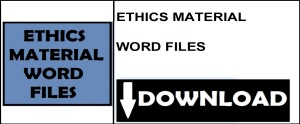
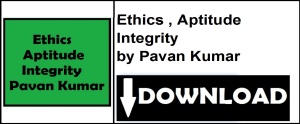
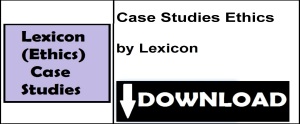

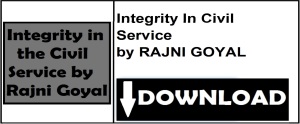
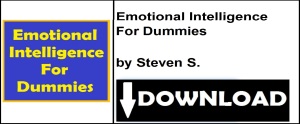
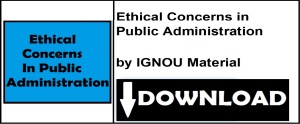
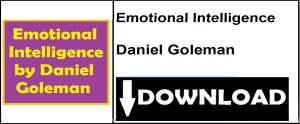
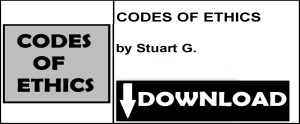

No comments:
Post a Comment
Note: Only a member of this blog may post a comment.